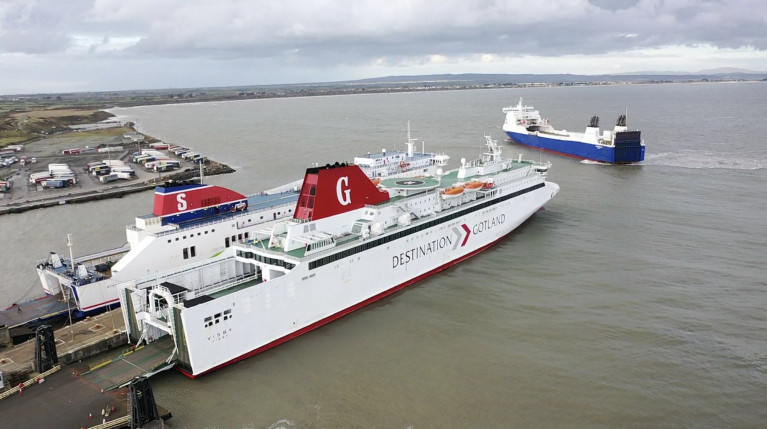Ferry capacity issues are building up on direct Ireland-mainland Europe routes as lorries avoiding Brexit checks through Britain are “bumped” to make way for vital imports of medicines and medical equipment.
As The Irish Times writes, hauliers booked onto the new Rosslare to Dunkirk service operated by shipping line DFDS have complained that bookings are not being honoured where the ferries are overbooked.
This has caused problems for hauliers seeking certainty to transport fresh food to and from mainland Europe as they avoid delays at post-Brexit border controls on Irish-British routes.
Disruption to the supply chain through the UK landbridge has forced importers and exporters to rely more heavily on limited direct services between Rosslare and French ports.
Aidan Coffey, route director of DFDS, which started a new ferry service between Rosslare and Dunkirk on January 2nd, defended the shipping line’s booking system, saying that it was trying to accommodate as many requests as possible but that it has been “overwhelmed” by bookings.
The company had to be “as fair as we possibly can” but had given a commitment to the HSE and Department of Transport to prioritise the transport of medicine and medical supplies.
A DFDS “priority ship” brought in a mobile Covid testing lab on the 24-hour sailing from Dunkirk to Rosslare on Monday night.
“We are prioritising where we can. Sometimes when you are prioritising on critical medicines and medical equipment like that, you have to bump others on to other sailings,” he said.
“It is a trying time for everybody in transport and shipping. Systems are under pressure.”
Mr Coffey described the landbridge - over which about 150,000 Irish trucks cross every year - as a “no go” because of post-Brexit customs and regulatory checks blocking up supply chains.
As for rival ferry operators (click here) operating on these direct routes and the Irish Sea.
































































